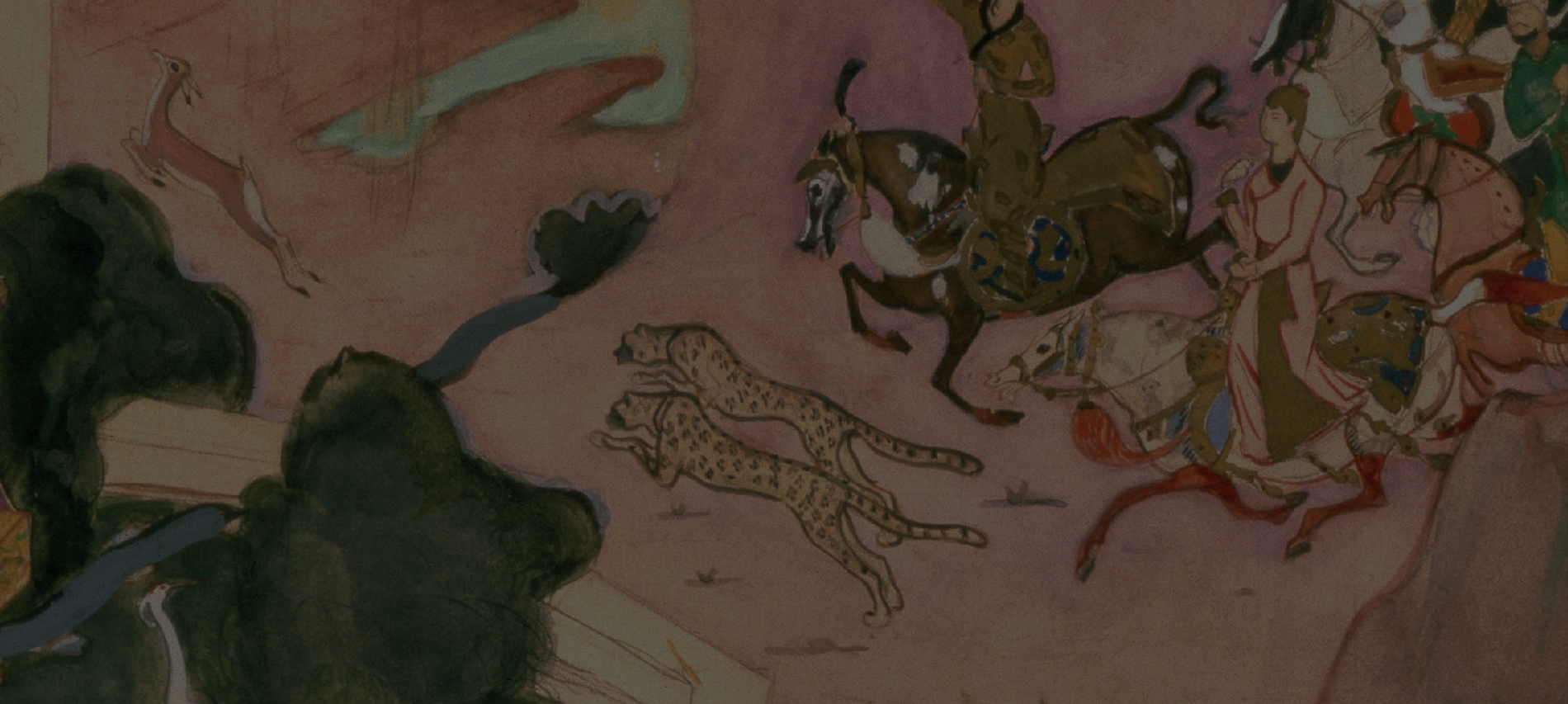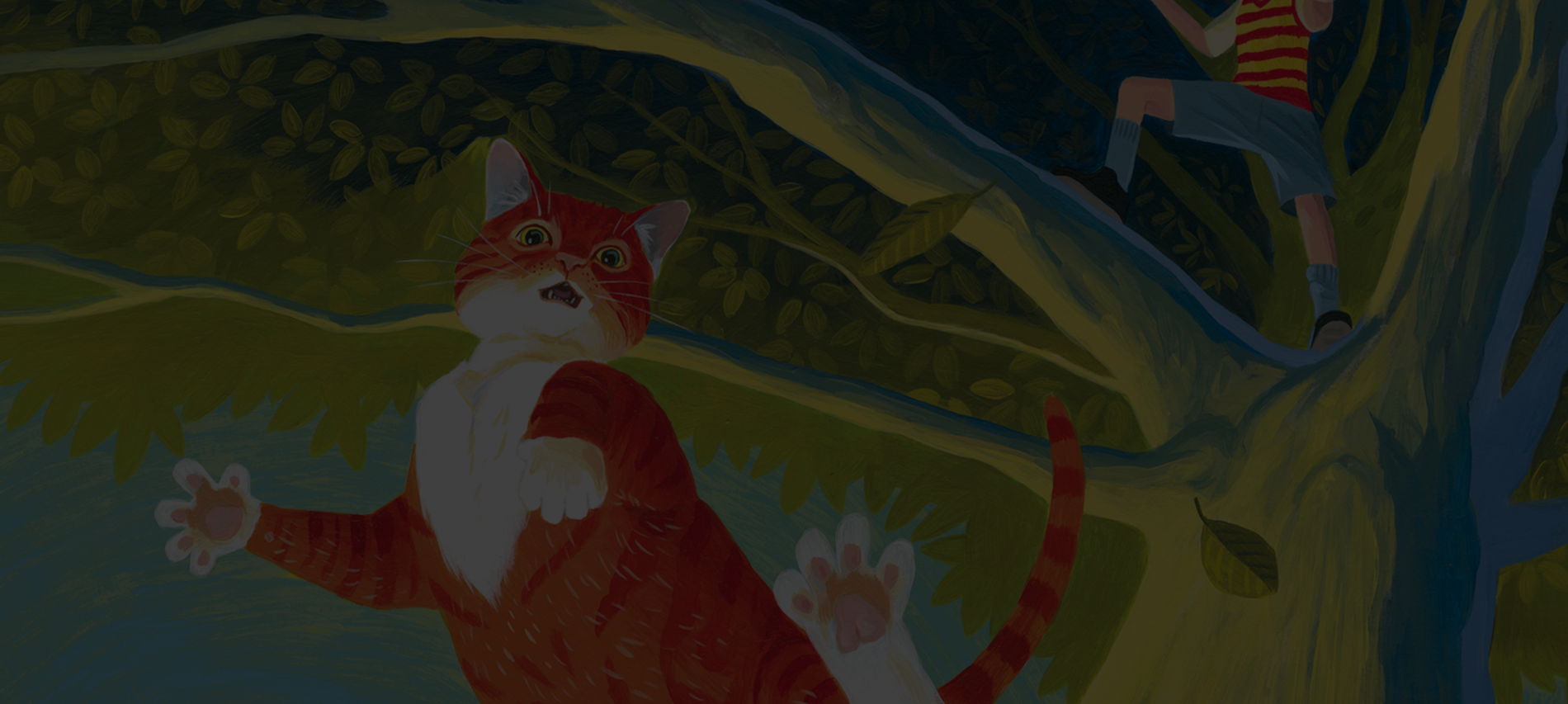The students at Fullbrook Academy are the elite of the elite, famous for their glamour and excess. Their traditions are sacred. But they can hide dark and dangerous secrets.
From New York Times bestselling author Brendan Kiely, comes Tradition, a stunning novel that explores various dangerous traditions that exist in this prestigious boarding school.
Take a sneak peek into what goes on at The Fullbrook Academy by reading an extract from the novel now!
———–
For the record . . .
JAMES BAXTER
Most people don’t get second chances. I wasn’t sure I deserved one. I wasn’t sure I even wanted one. But I got one: Fullbrook Academy. This is what I did with it.
JULES DEVEREUX
I once heard another girl put it like this: This is a boys’ school and they accept girls here too. At Fullbrook, they told us to be ready to take on the world, but then they told us to do it quietly. What if I wanted to be loud? What if I needed to be?
The night everything changed . . .
JULES DEVEREUX
I’m fighting for breath and all I can do is look up and see the white flame of moonlight outlining each branch, every leaf. I’m in the dirt, again, shoulder against the tree, the shock of air so cold it seizes my bones. I can still feel his grip on my arm, as if he’s still here, shackling me to the trunk with his hands and his weight, but he’s not. He’s gone. I’m so cold. I’m shaking, but it feels like it’s this tree and the sky above that are shaking, that are blurry, unreal, no longer what they were. It’s as if I’m naked, but I’m not. It’s as if the ground is swinging up to slap me, but it’s not. I collapse by the edge of the bluff. There are still voices in the woods behind me. Voices down along the far end of the bluff. Voices in the night air like invisible birds screeching in the wind.
There’s a voice inside me, too. It’s mine, I think, but it doesn’t sound like me. It’s me and it’s not me. It grows louder and louder, barking, bellowing up from somewhere and squeezing my head with noise. It’s me and it isn’t, or it’s me splitting in two, and this other voice, this new voice, keeps shouting. Run, it says. Run, run, run.
I’m so close to the cliff edge, I could crawl forward and drop, crouch on one knee by the side of the pool like I did when I first learned to dive, but I’m hundreds of feet in the air, and the voice tells me to back up. I obey. It tells me to stand, and I use the tree to help me to my feet. Run, it says again, and I do, into the woods, down the far path, away from the party, away from the other voices, away from everyone. I know where I’m going, but I still feel lost. Alone. I just want to get home, though the word means nothing now. Just because I live there doesn’t mean it’s somewhere safe.
JAMES BAXTER
I can’t believe this, but I’m so out of breath I have to crouch down and lean against the back wall of the girls’ dorm, just to put some air in my lungs. Damn, it hurts. But you can’t lug a passed-out person through the woods, across campus, get her up through the bathroom window, and not want to collapse. Even if you’re me. And even if I did get some help.
I know she thinks I’m an asshole, and I didn’t do it to change her mind. I just did it because it was the right thing to do and I knew it was the right thing to do, and it was the first time in a year I’d felt so certain I knew right from wrong—that I had to do the right thing and forget all the rest.
If you care about a person, my ex-girlfriend used to tell me, don’t just tell her. Show her. Show up, listen, and act so she knows you heard her. Seems so simple the way she put it, but it’s never that simple. An avalanche of other pressures buries that wisdom most days, all days, except this night, when, for some reason, I heard that advice strong and true, like a wind through the eaves of the old wooden rooftop above me.
Way up in the sky the man in the moon has something like sad eyes, as if his pale face gazes down with pity, as if he wishes something better for us, or maybe wishes we ourselves were the ones who were better. I’m sure I’m sober, not drunk, just going a little crazy to think like that, but I think it anyway, because I feel that way. Sad. Like this whole stupid paradise, this very good school, is nothing but a fancy promise, a broken one, a big lie. And worse, that I’m actually a part of it.
———–

Category: Excerpts
Ranji the Music Maker, a story every child must read!
India’s favourite storyteller, the man endowed with endless imagination, Ruskin Bond is known for writing tales about the simple pleasures of life and everlasting friendship. Here is a list of gorgeous chapter books by him including his latest offering, Ranji the Music Maker. These stories promise to leave your child delighted and happy.
The Cherry Tree

Rakesh plants a cherry seedling in his garden and watches it grow. As seasons go by, the small tree survives heavy monsoon showers, a hungry goat that eats most of the leaves and a grass cutter who splits it into two with one sweep. At last, on his ninth birthday, Rakesh is rewarded with a miraculous sight-the first pink blossoms of his precious cherry tree!
Getting Granny’s Glasses

Mani’s Granny is seventy and can barely see through her old, scratched glasses. With only a hundred and fifty rupees in their pockets and a thirst for adventure, Mani and Granny set off to buy a new pair. On the way, they get drenched in the rain, run into mules and encounter a terrible landslide. Will Granny ever be able to reach the town and get herself a new pair of glasses?
Earthquake

What do you do when there’s an earthquake?’ asks Rakesh. Everyone in the Burman household has their own ideas, but when the tremors begin and things start to quake and crumble, they are all taken by surprise. Amidst the destruction, Rakesh’s family stays strong. But will they survive the onslaught of yet another earthquake?
The Tree Lover

Rusty tells the story of his grandfather’s relationship with the trees around him, who’s convinced that they love him back with as much tenderness as he loves them.
The Day Grandfather Tickled a Tiger

Grandfather had brought home Timothy, the little tiger cub, from the forests of the Shiwaliks. Timothy grew up to be a friendly tiger, with a monkey and a mongrel for company. But some strange circumstances lead Grandfather to take Timothy away to a zoo. Will they ever meet again? This is a heart-warming story about love and friendship.
Dust on the Mountain

Bisnu finds how dangerous and lonely life can be for a boy who has to leave his home to earn money for his family. As he sets to work on the limestone quarries with the choking dust enveloping the beautiful mountain air, he longs for home more than ever.
Cricket for a Crocodile

Ranji’s team finds an unexpected opponent a nosy crocodile when they play a cricket match against the village boys. Annoyed at the swarms of boys crowding the riverbank and the alarming cricket balls plopping around his place of rest, Nakoo the crocodile decides to take his revenge.
White Mice

Ruskin is keen to teach his scatterbrained uncle a lesson. After all, he put him on the wrong train! Armed with gifts from his new friend, the stationmaster-yummy rasgullas and a pair of beautiful white mice-Ruskin devises the perfect payback.
Ranji the Music Maker

In the middle of his languid holiday, idle young Ranji stumbles upon assorted musical instruments in the storeroom-first a shrill flute, then a blaring little trumpet and, finally, a too-big drum that may have once sounded a battle march. He stages impromptu concerts down the road, not sparing his neighbours, nor the cats around his porch, nor the peace-loving inhabitants of the zoo! But all Ranji’s really seeking is a friend who’ll hear the magic in his din.
Undercover Princess by Connie Glynn – An Excerpt
Connie Glynn has always loved writing and wrote her first story when she was 6 with her mum at a typewriter acting as the scribe. It was at university that Connie started her hugely successful YouTube channel Noodlerella (named after her favourite food and favourite Disney princess). Her book, Undercover Princess is about a fairy tale obsessed Lottie Pumpkin who starting at the infamous Rosewood Hall, where she was not expecting to share a room with the Crown Princess of Maradova, Ellie Wolf. Lottie is thrust into the real world of royalty – a world filled with secrets, intrigue and betrayal.
Let’s read an excerpt from the book:
————————————————
Princess Eleanor Prudence Wolfson, sole heir of King Alexander Wolfson and next in line for the throne of Maradova, did not live in one of these spaces, nor was she one of these people, but she was in desperate need of both.
‘I am going to this school!’ Eleanor slammed the brochure on the table with a loud thwack, causing the cups of breakfast tea to wobble on top of their saucers.
Alexander Wolfson didn’t even look up from his newspaper to reply.
‘No,’ he said blankly.
‘I am next in line for the Maravish throne. I think the teeny-tiny decision of which school I attend is something I am capable of managing myself.’
Alexander looked up at his wife, Queen Matilde, who was sitting across the table from him.
She shrugged. ‘She does have a point, Alex,’ she said amiably, delicately dropping a lump of sugar into her teacup and stirring it slowly while stifling a smile.
This was not the parental solidarity King Alexander had been hoping for.
‘See?’ said Eleanor. ‘Even Mum agrees with me.’
Alexander remained firmly fixated on his newspaper, feigning an image of complete composure. He took a sip of tea.
‘ Edwina –’ he gestured to their maid – ‘would you kindly take the empty plates to the kitchen, please?’
‘Of course, Your Majesty.’ Edwina expertly stacked the crumb-covered trays and exited the dining hall with a skilled smoothness, her feet barely making a sound on the oak flooring. The large double doors closed behind her, creaking softly as she eased them shut.
Once Alexander was sure she was a reasonable distance down the hall, and safely away from any domestic outbursts, he looked back down at his newspaper and said, ‘My answer is no.’
Eleanor let out an exasperated screech and stamped her foot. ‘You could at least look at the brochure!’ she snapped, snatching the newspaper from her father’s fingertips.
Alexander was forced to look up at his daughter.
Eleanor had always been a challenging child. She was anything but a typical princess; she would take fiery political arguments and sneaking out to loud, rowdy concerts over mild polite conversation any day, and more than anything she despised elaborate formal functions – or at least she assumed she did, having refused to ever attend one. But she was smart, she was confident and she was passionate – and for Alexander that was all far more important than any of the traditional values expected of her. Although occasionally he did wish she’d watch her language around her grandparents.
As much as he wanted Eleanor to be happy and live a life free of the commitments of royalty, the fact remained that she would be queen one day and would eventually need to accept that responsibility. He was determined to find a way to make his daughter realize she could enjoy her royal obligations; something he’d had to learn himself when he was younger.
——–
‘What on earth are you wearing?’ Ollie’s sarcastic tone drifted into Lottie’s bedroom. He stood leaning against the door frame, his arms crossed as he watched Lottie pack up the last items in her room.
‘Ollie!’ Lottie’s hand rushed to her chest in shock at the sudden appearance of her best friend. ‘How did you get up here? And how many times do I have to tell you to knock?’ Lottie was huffing slightly from trying to squish down her suitcases. Ollie was fourteen, the same age as Lottie, yet even though he was taller than her he’d retained his baby face, which reminded her of soft-serve ice cream on the beach and other happy memories.
‘I had to sneak past the wicked witch. Did you know her skin’s turned green finally?’ Ollie said with a devilish smile.
Lottie giggled, but she couldn’t ignore his comment. She looked down at her outfit, brushing down her dress self- consciously. ‘And what exactly is wrong with my outfit?’ she said indignantly.
Ollie laughed, grinning at her with his signature cheeky smile. Clumps of dog hair dotted his jeans, a permanent feature that he never seemed to care about.
‘Isn’t it a little too fancy for the first day of school?’
‘Too fancy?!’ Lottie couldn’t believe he’d suggest something so ridiculous. ‘Nothing is too fancy for Rosewood Hall. I need to fit in. I can’t have my clothes making me an outcast on the first day.’
Lottie began picking at a non-existent spot on the collar of her dress. ‘Most of the students probably have their clothes tailor-made out of gold or something.’
Ollie casually strolled into the room, taking a seat on Lottie’s bed. He pursed his lips as he glanced around the bedroom. Usually so alive with Lottie’s special brand of handmade quirkiness, it was now stripped bare, everything she owned crammed into two pink suitcases.
‘Well,’ Ollie began, reaching into his pocket, ‘if you can take a moment off from worrying about what other people think of you . . .’ He pulled out a crumpled envelope and a worn-out Polaroid that Lottie recognized from his bedroom wall. ‘These are for you.’
Lottie reached out for them, but Ollie whipped his hand back.
‘You can’t open the letter until you’re on the train.’
Lottie nodded with an exasperated smile and he slowly placed both gifts in her hand. It was a photograph she’d seen thousands of times: the two of them at the beach, their noses covered in ice cream and beaming grins on both their greedy faces. Even though the colours had begun to fade to sepia, you could still see the tiara on Lottie’s head and the horns on Ollie’s. As children, the two had demanded to wear these fancy-dress items every day and everywhere. Ollie had declared he was the fairy Puck from Shakespeare’s A Midsummer Night’s Dream after they’d watched an open-air performance at the beach one evening. He’d been completely infatuated with all the mischief the character got away with and assumed he too could get away with being naughty so long as he was wearing his horns. Lottie’s tiara, on the other hand, had a less happy – go – lucky origin. Her thumb lingered over the accessory in the photo, a little pang striking her heart as she remembered the day she’d received it.
‘I’ll give you some time to say goodbye,’ he said, before effortlessly picking up both her suitcases and carrying them down the stairs to the car. When he was gone she thoughtfully placed Ollie’s gifts with the rest of her most important belongings, which she’d laid out on the now-bare bed so as not to forget them. She put each item into her handbag: first the weathered Polaroid and letter from Ollie, followed by her favourite sketchbook, her most loyal stuffed companion, Mr Truffles, a framed photo of her mother, Marguerite, in her graduation gown, and, finally – looking very out of place among the other objects – a crescent- moon tiara, her most valued possession. It had taken Lottie all of sixty minutes to pack her entire life into two pink suitcases, one denim backpack and a small over- shoulder handbag with a sturdy white strap. She looked over the now- empty room.
I did it, Mum, she thought. I got into Rosewood just like I promised.
Copyright © Connie Glynn, 2017

The Hazel Wood by Melissa Albert – An Excerpt
The Hazel Wood, is about seventeen-year-old Alice and her mother who have spent most of Alice’s life on the road, always a step ahead of the strange bad luck biting at their heels. But when Alice’s grandmother, the reclusive author of a book of pitch-dark fairy tales, dies alone on her estate – the Hazel Wood – Alice learns how bad her luck can really get. Her mother is stolen away – by a figure who claims to come from the cruel supernatural world where her grandmother’s stories are set. Alice’s only lead is the message her mother left behind: STAY AWAY FROM THE HAZEL WOOD.
Let’s read an excerpt from this absolutely unputdownable book.
_________________________________________________________________________
Althea Proserpine is raising her daughter on fairy tales. Once upon a time she was a girl named Anna Parks, one of the legion of midcentury dreamers who came to Manhattan with their hopes tucked into a suitcase. Then she went missing. Then she came back, and achieved an odd kind of fame, glittering from some angles but dark from others. Now she’s gone again, ed to a turreted house in the deep dark woods, where she lives with her ve- year- old daughter and her husband, an actual royal— she just can’t quit fairy tales. When I get her on the phone, her voice is as alluring as her most famous photo, the one with the ring and the cigarette. I ask if I can come talk to her in person, and her laugh is hot whiskey on ice. “You’d get lost on the way to nding me,” she says. “You’d need breadcrumbs, or a spool of thread.” — “The Queen of the Hinterland,” Vanity Fair, 1987
My mother was raised on fairy tales, but I was raised on highways. My first memory is the smell of hot pavement and the sky through the sunroof, whipping by in a river of blue. My mom tells me that’s impossible— our car doesn’t have a sunroof. But I can still close my eyes and see it, so I’m holding on to it.
We’ve crossed the country a hundred times, in our beater car that smells like French fries and stale coffee and plasticky strawberries, from the day I fed my Tinkerbell lipstick into the slats of the heater vent. We stayed in so many places, with so many people, that I never really learned the concept of stranger danger.
Which is why, when I was six years old, I got into an old blue Buick with a redheaded man I’d never met and drove with him for fourteen hours straight— plus two stops for bathroom breaks and one for pancakes— before the cops pulled us over, tipped off by a waitress who recognized my description from the radio.
By then I’d figured out the man wasn’t who he said he was: a friend of my grandmother, Althea, taking me to see her. Althea was already secluded in her big house then, and I’d never met her. She had no friends, just fans, and my mother told me that’s what the man was. A fan who wanted to use me to get to my grandma.
After they’d determined I hadn’t been assaulted, after the redheaded man was identified as a drifter who’d stolen a car a few miles from the place we were staying in Utah, my mother decided we’d never talk about it again. She didn’t want to hear it when I told her the man was kind, that he’d told me stories and had a warm laugh that made me believe, deep in my six- year- old’s heart, he was actually my father come to claim me. She’d been shown the redheaded man in custody through a one- way mirror, and swore she’d never seen him before.
For a few years I’d persisted in believing he was my dad. When we left Utah after his arrest, to live for a few months in an artists’ retreat outside of Tempe, I worried he wouldn’t be able to find me again.
He never did. By the time I turned nine, I’d recognized my secret belief for what it was: a child’s fantasy. I folded it away like I did all the things I didn’t need— old toys, bedtime superstitions, clothes that didn’t fit. My mom and I lived like vagrants, staying with friends till our welcome wore through at the elbows, perching in precarious places, then moving on. We didn’t have the luxury of being nostalgic. We didn’t have a chance to stand still. Until the year I turned seventeen, and Althea died in the Hazel Wood.

Marvellous Thieves, An Excerpt
Paulo Lomas Horta in ‘Marvellous Thieves’ introduces the poets, scholars, pilgrims and charlatans who made unacknowledged contributions to Arabian Nights.
Here’s an excerpt from the book.
On March 25, 1709, a visit by Antoine Galland to the Paris apartment of his friend Paul Lucas yielded a discovery that would shape the literary legacy of the first French translator of the Thousand and One
Nights. Lucas, a collector of treasures for the court of Louis XIV, was well known for his travels in the Middle East, and his apartment was recognized as one of the marvels of the French capital. Listed in early eighteenth- century guidebooks as a place to view antiquities and other rare objects from Greece, Egypt, and Asia Minor, it drew scholars, collectors, and curiosity seekers of all kinds. Over the course of his journeys in the Mediterranean and the Ottoman Empire, Lucas had amassed enough medallions, coins, engraved stones, and gems to fill six rooms.
The herbier in his apartment contained some 3,000 varieties of plants taken from foreign locations, and the droguier was equally impressive. One visitor to the apartment in the 1730s described a remarkable sculpture of the goddess Ceres that Lucas had acquired in Athens forty years earlier. Ten feet tall, the figure was made of Oriental jasper and plated with bronze, and in Paris she enjoyed the company of many other bronzes from Greece, Macedonia, and the Levant, as well as two Persian sculptures of nude sages at prayer. Among such historically valuable pieces, stranger artifacts were scattered: petrified mushrooms, seahorses, and mummified birds encased in bronze.
Arriving at this cabinet of curiosities in 1709, Galland found an even greater treasure awaiting him: a young Maronite traveller from Aleppo by the name of Hanna Diyab who, he reported, “[knew] some very beautiful Arabic tales.” While Lucas may have viewed Diyab as just another Oriental curiosity to be displayed at the French court, Galland saw in him a solution to a frustrating predicament. After translating all the stories in his incomplete Arabic manuscript of the Thousand and One Nights, Galland was in need of more, and he had now found a storyteller who could fill the gap. In a sequence of twelve meetings between May 5 and June 2, 1709, Diyab related sixteen fantastic stories to Galland, who chose to add ten of these to the final three volumes of his French version of the Arabian Nights. Th ese storytelling sessions were the origin of some of the most famous of the Arabian Nights tales— including “Ali Baba and the Forty Thieves” and “Prince Ahmad and the Fairy Peri- Banu”— and represent a lasting contribution to a story collection that has taken its place in the canons of world literature.
It was not the first time that Galland had benefitted from the curiosities collected by Lucas. Despite his lack of respect for Lucas’s abilities as a scholar, Galland found his collection of coins very useful in his own numismatic research, and he tried to gain access to lists or drawings of these from common acquaintances when his younger colleague was unwilling to share. Just as Galland borrowed coins to add entries to his numismatic dictionary, he would borrow Diyab to add stories to his version of the Arabian Nights. Considering his impact on the first French edition of the Arabic story collection, the Syrian storyteller could be judged the most valuable curiosity Lucas ever brought back from the Levant.
Since the publication of Les mille et une nuits, Galland’s French version of the Arabian Nights, in twelve volumes from 1704 to 1717, Galland has been credited as the first “author” of the collection in European letters, and as a crucial contributor to the emergence of the “Oriental tale” in French. Not only did he translate the 282 nights of stories in his Arabic manuscript in elegant Parisian prose, but he is credited with making a more substantial contribution to the story collection by lovingly adopting and adapting the tales that he heard from Diyab in 1709.
These stories, called the “orphan tales” because (with one exception) they have no known Arabic manuscript source, are seen as central to Galland’s achievement as a translator of the Arabian Nights. In this portion of his story collection, Galland’s work was no longer simply translation or adaptation; it represented “creation.”
Jean- Paul Sermain, one of the editors of the most recent edition of Galland’s Les mille et une nuits (2004), states the case most persuasively. He argues that Galland, working from his sparse notes on Diyab’s oral per for mances, created tales of ordinary characters caught up in extraordinary predicaments. Drawing on French literary conventions, he invented dialogues and descriptions and gave narrative coherence to the tales. Characters were developed with more sympathy, and moral lessons were highlighted. In the hands of Galland, the orphan tales of Diyab spoke of the superiority of the hero of humble origins and the need to behave decently in difficult circumstances. To fill out his meager notes, the French translator drew on his scholarly knowledge and his own travels of the Orient to imagine the fabulous details of voyages, palaces, and magical objects. Sermain argues that these orphan
tales teach the reader how to read the Arabian Nights as a whole. In the space between the French fairy tale and the Arabic story cycle, Galland seemed to fashion a new genre— that of the “Oriental tale.”

The Birth of Parvati, An Excerpt from The Man from The Egg
Sudha Murthy in ‘The Man from the Egg’ weaves enchanting tales about the holy trinity in Hindu mythology. Consisting of Brahma, Vishnu, and Shiva, the trinity is responsible for the survival of the human race and the world.
Here’s an excerpt chronicling the birth of goddess Parvati:
Taraka was a powerful and ambitious asura, and a devotee of Lord Brahma. One day he began a severe penance for Brahma, living on a mountain for a long period of time. pleased with Taraka’s devotion, the creator appeared before him.
‘O my lord!’ Taraka cried. ‘my life’s purpose has been fulfilled now that I have felt your presence.’
Brahma smiled. ‘tell me what your heart desires.’
‘I want to live forever,’ replied Taraka.
‘My dearest devotee, you know that such a boon is not possible. why don’t you ask me for something else?’
Taraka thought for some time. ‘I don’t want to die at the hands of just any man or god. if i must perish, I would rather it happened at the hands of the son of Shiva,’ he said, knowing full well that Shiva, grief-stricken by the loss of Dakshayani, was far from even the thought of marrying
again. So, the boon would actually make Taraka invincible and keep him safe from Yama, the god of death.
Brahma understood Taraka’s intention. nevertheless, he said, ‘So may it be.’
His penance now complete, Taraka descended from the mountain and returned to his abode. Over time, he created a powerful army headed by ten cruel generals. and then he went on a rampage, conquering kingdoms, abusing living beings on earth as well as the gods above. he terrorized them all so much that everyone began praying to Lord Vishnu.
Vishnu heard their pleas. ‘Shiva and parvati’s son will be the cause of taraka’s doom,’ he declared.
Himavat or Parvatraj, the king of the Himalayas, had a wife named Menaka. the queen really wanted a daughter who would grow up to become Shiva’s consort. when Menaka heard about Dakshayani, she instinctively knew that Shiva’s wife would be reborn as her daughter. She thus decided to go into deep meditation, convinced that destiny would soon take its course.
Menaka gave birth to a beautiful baby girl, whom she named Uma. as Uma was the daughter of Parvatraj, she was also known as Parvati, or Himani (from her father’s other name, Himavat), or Girija (meaning the daughter of the king of mountains), or Shailaja (meaning the daughter of the mountains).
Parvati was a charming child and unusually devoted to Shiva right from her birth. Even as an adult, she was always found either praying to Shiva or just talking about him. News of her beauty and intelligence spread far and wide. Though suitors came in hordes with the hope of winning her heart, Parvati could only think of Shiva and refused to entertain the
idea of marrying anyone else.
The devas were watching all this with great interest. they eagerly awaited the arrival of Parvati and Shiva’s son—the harbinger of Taraka’s death.
Shiva, on the other hand, deep in meditation atop the cold mount Kailash, remained unaware of what was going on. much to the concern of her parents, a determined Parvati made the arduous journey to Kailash and began serving Shiva. She took care of his surroundings, brought him fruits and made garlands for him every day. She wanted to be there the moment he opened his eyes so they could marry as soon as possible.
The gods sighed with relief and hoped that Shiva would soon awaken from his penance.
Days, months and years passed but Shiva showed no signs of emerging from his meditation. if he did not open his eyes, he would never see Parvati, which meant that he wouldn’t marry her or have a son. and if the current state of affairs continued, Taraka’s cruel reign would be the end of everybody.
Frustrated, the gods decided to take matters into their own hands. all the realms were in grave danger. they had to intervene and force Shiva to awaken, but who would take the risk? no one dared offer to be the one to disturb Shiva’s penance and become the target of his infamous temper.
Everyone knew that when he was extremely angry, his third eye would open and immediately spew a great fire that destroyed everything in its path. And yet the task needed to be done.
the gods decided to approach the diplomatic Lord Vishnu and beseech him to find a way to guarantee Shiva and Parvati’s marriage.
‘All right, let’s see how things turn out,’ Vishnu said with a mysterious smile.

Letters from a Father to his Daughter – An Excerpt
Jawaharlal Nehru, the first prime minister of independent India, was one of the prominent figures during the Indian freedom struggle. He started writing letters to his daughter Indira when she was ten years old. He wrote to her about diverse topics, ranging from the origin of the Earth to history of races and faith.
In a collection of 30 letters, Pandit Nehru imparted wisdom to his growing up daughter, while steering the movement to Indian freedom.
Here’s an excerpt from the book.
We saw in our last letter that the chief difference between man and the other animals was the intelligence of man. This intelligence made him cleverer and stronger than enormous animals who would otherwise have destroyed him. As man’s intelligence grew, so also grew his power.
To begin with, man had no special weapons to fight his enemies. He could only throw stones at them. Then he began to make out of stone: axes, spears and many other things, including fine stone needles. We saw many of these stone weapons in the South Kensington Museum and also in the museum in Geneva.
The Ice Age, about which I said something in my last letter, slowly ended and the glaciers disappeared from Central Europe and Asia. As it became warmer, men spread out.
In those days there were no houses or other buildings. People lived in caves. There was no cultivation, that is working in the fields. Men ate fruits and nuts and the animals they killed. They had no bread or rice because they did not grow anything in the fields. They did not know cooking but perhaps they just heated the meat on the big fires they had. They had no cooking vessels or pots and pans.
One thing is very curious. These savage men knew how to draw. Of course they had no paper or pens or pencils or brushes. They simply had their stone needles and pointed instruments. With these they scratched or drew animals on the walls of caves. Some of their drawings are quite good but they are almost all profiles. You know that it is easier to draw profiles, and children usually draw in this way. As the caves must have been dark it is probable that they used some kind of simple lamp.
These men that we have described are called Palaeolithic men, or the men of the old Stone Age. That period is called the Stone Age because men made all their tools with stone. They did not know how to use the metals. Today most of your things are made of metals, specially iron. But iron or bronze was not known then, and so stone, which is much more difficult to work with, was used.
Before the Stone Age came to an end, the climate of the world changed greatly and became much warmer. The glaciers had gone far back to the Arctic Ocean, and in Central Asia and Europe great forests arose. Among these forests we find a new race of men living. These people were cleverer in many ways than the Palaeolithic men whom we have just described. But they still made their tools out of stone. These men also belonged to the Stone Age but it was the later Stone Age. They are called Neolithic men or men of the new Stone Age.
We find when examining these Neolithic men that great progress has been made. The intelligence of man is making him go ahead fast compared to the other animals. These Neolithic men made the very great discovery of cultivation. They started tilling fields and growing their food there. This was a great thing for them. They could now get their food more easily instead of having to hunt animals all the time. They got more leisure, more time to rest and think. And the more leisure they had, the more progress they made in discovering new things and methods. They started making earthen pots, and with the help of these they began to cook their food. The stone tools were much better and were beautifully polished. They also knew how to tame animals like the cow, the dog, the sheep and the goat. They also knew how to weave.
They used to live in houses or huts. These huts were very often made in the middle of lakes as the wild animals or other men could not attack them easily there. These people are therefore called lake-dwellers.
You will wonder how we know so much about these people. They wrote no books of course. But I have already told you that the book where we read the story of these men is the great book of nature. It is not easy to read it. It requires great patience. Many people have spent their lives in trying to read this book and they have collected large numbers of fossils and other remains of old times. These fossils are collected together in the great museums, and we can see there the fine polished axes and the pots and stone arrows and needles and many other things which were made by the Neolithic man. You have seen many of these things yourself but perhaps you have forgotten them. If you see them again you will be able to understand them better.
There was, I remember, a very good model of a lake-dwelling in the Geneva museum. Wooden poles were stuck in the lake, and on top of these poles a wooden platform was made. On the platform the wooden huts were put up and the thing was connected by a little bridge to the land.
These Neolithic men clothed themselves with the skins of animals or sometimes with a rough cloth of flax. Flax is a plant which has a good fibre used for making cloth. Linen is now made out of flax. But in those days cloth of flax must have been very rough.
These men went on making progress. They started making tools of copper and of bronze. Bronze, as you know, is a mixture of copper and tin and is harder than either of these. They also used gold and were vain enough to make ornaments out of it!
These people must have lived about 10,000 years ago. Of course, we do not know the exact dates or periods. All this is largely guesswork. You will notice that so far we have been talking of millions of years. We are now gradually getting nearer and nearer to our present age. From the Neolithic man to the man today there is no break or sudden change. But still we are very different from him. The changes came slowly, as is nature’s way. Different races developed and each race went its own way and lived its own life. The climate being different in different parts of the world, people had to adapt themselves to it and changed greatly. But we shall talk about this later.
One thing more I want to tell you today. About the end of the Neolithic age a very great disaster happened to man. I have told you already that at that time the Mediterranean was not a sea at all. There were just some lakes there and in these lakes many people lived. Suddenly, the land near Gibraltar, between Europe and Africa, was washed away and the waters of the Atlantic Ocean poured into the low valley of the Mediterranean. The water went on pouring and filling it up, and large numbers of the men and women living near or over the lakes must have been drowned. They could not escape anywhere. There was water all over the place for hundreds of miles. The Atlantic Ocean continued to pour in till it had filled up the valley, and the Mediterranean Sea came into existence.
You have heard, of course, and perhaps read, about the great flood. The Bible speaks about it and some of our Sanskrit books also refer to it. It may be that this mighty flood was the filling up of the Mediterranean. It was such a terrible disaster that the few people who managed to escape must have told all about it to their children, and they to their own children, and so the story was handed down from generation to generation.

‘This is no ordinary cat’: The Nine Lives of Montezuma — An Excerpt
As the famous saying in English tells us every cat has nine lives, Michael Morpurgo’s The Nine Lives of Motenzuma proves that cats indeed are survivors in this big, bad world.
Montezuma, a ginger cat, is anything but your ordinary furry friend. As soon as he is discovered, the characters in the story realise that this cat is not a normal alley cat but a creature with magical powers, much like its namesake, the survivor King of the Aztec.
Here’s a short excerpt from the book.
He found Montezuma crouching at the end of a long tapering branch that hung out over the pond. The branch looked thick enough and safe enough near the trunk, but the further away it stretched the more fragile it looked. Matthew stood in the fork of the tree and considered all the alternatives, trying to ignore the warnings and advice from below. He could not climb out along the branch to Monty – the branch would not take his weight. He needed a net to throw out over the cat, but there was no-one who could bring a net up to him – neither his father nor his mother could climb trees – at least he had never seen them. He would have to talk the kitten back to safety, that was the only way.
‘Monty,’ he said in as soothing a tone as he could manage. ‘It’s me, Monty. You can’t stay out there all day. You’ll be all right now. I’ll take you down. Come on then, come on. I won’t hurt you.’
But the kitten crouched low, glued to the branch like lichen. He blinked back at Matthew, swallowing hard and mewing weakly every so often. Matthew talked on in a consoling, sympathetic tone; but he received no encouragement from Montezuma who never moved a muscle.
From down below his father was shouting up to him. ‘Can’t you get him down?’ A question which Matthew didn’t feel he could answer politely.
‘Fire Brigade,’ his mother shouted up. ‘What about the Fire Brigade?’ They looked so small down there in the yard. Matthew felt his parents had been getting smaller in recent years, but he had never seen them this small.
‘Not yet,’ Matthew shouted back. ‘Not yet. I’ll try one more thing.’
‘Do be careful, dear. Do be careful.’ His mother’s voice sounded hysterical, but then it always did whenever she shouted.
Matthew held onto the branch above him and edged out onto Montezuma’s branch, stepping sideways like a cautious crab. The two branches ran parallel for a few yards and then the upper one that Matthew was holding onto came to an abrupt halt. Matthew went as far as he could and then released the upper branch. For a moment he stood balancing with nothing to hold onto. The branch swayed underneath him and he lowered himself carefully until he was sitting astride the branch, his hands clasping it firmly in front of him. Like this he pulled himself along inch by inch until he knew he could go no further. The kitten was still well out of reach.
‘That’s far enough.’ His father’s shout was sharp. ‘No further. That’s far enough. The branch won’t take the weight. No further.’
Matthew knew he was right, but he was nearly there and it was only a few more feet. He lay now flat along the branch gripping behind with his feet, his hands holding on in front of him. ‘Come on Monty, come on down. Please, there’s a good kitten. Come on now.’ But as he released one hand to reach out towards the cat, he lost his balance and had to grab at the branch suddenly to retrieve himself. Alarmed, the kitten backed away, lost his grip and tumbled down through the air towards the pond. Matthew watched for the splash and saw his father running down across the yard towards the pond. The ducks evacuated the pond noisily, leaving Matthew’s father alone in the pond striding waist deep to the spot where Montezuma had fallen in. Matthew waited, closed his eyes and prayed. When he opened them his father was shouting up at him and laughing, holding up a dripping kitten. ‘Got him. He’s all right. The little divil’s still breathing.’
By the time Matthew had made the descent, his father was out of the pond and had pulled off his shoes. He was sitting on the ground taking his socks off and wringing out the water. ‘Your father will catch his death,’ said Matthew’s mother, who was holding on to Montezuma in a vice-like grip. ‘Here’s your Monty,’ she said. ‘You take him. And for God’s sake hang on to him. You worry me to death, you two. First you go climbing up trees and then he goes jumping into cold ponds – at his age. You should know better. Could have killed you both and all for what? For a kitten.’
‘For Monty,’ said Matthew, rubbing the kitten dry with the tail of his shirt. ‘This is no ordinary cat, you know. Can you imagine my Dad jumping into a pond to rescue any other cat? He’s dropped plenty of kittens into this pond, but this is the first one he’s ever pulled out and that’s a fact.’
‘And the last,’ said his father wriggling his wet toes. ‘Definitely the last.’
Find out which adventure Montezuma encounters next in this enchanting book by Michael Morpurgo!

Who Are Nicky and Noni and Why Should You Introduce Them To Your Children?
Meet Nicky and Noni — the uber cool twins from author Sonia Mehta’s new series of books for children — ‘My Book of Values’.
Like any kid, Nicky and Noni too love to engage in fun activities. But as kids, they get into trouble too.
Nicky and Noni now know that learning good values can be very cool. It can be fun, and super engaging!
Do you want to meet them?

Dear Moms and Dads,
Would you believe that your little one is already old enough to take small decisions by herself or himself? There will be a hundred tiny things that happen to them during the day, where they have to act in a certain way, take small calls and make their own judgement. This then is the right time to prepare and give them that sense of right and wrong that we all grew up with.
But it needs to be done subtly. Today’s child isn’t up to lectures and threats. This is the purpose of this series. Being able to differentiate right from wrong and good from bad, building a strong value system, learning to accept consequences—all through relatable stories and fun activities.
Nicky and Noni are typical twenty-first-century kids. Smart, communicative and alert, they know how to get their way. But as they go about their lives, they encounter situations and challenges during which their value system is tested.
Using Nicky and Noni as protagonists, and with activities that make your child think and apply certain concepts, the series highlights the importance of key values and how they make a difference in life.
We’ve tried to make the series fun and engaging while communicating a single message: that in today’s time, BEING GOOD IS COOL.
Find out what new lesson Nicky and Noni learnt today! Grab your copy of ‘My Book of Values’ by Sonia Mehta now!

Michael Burns Gives the Tips to Hack into Your Creativity
Michael Burns is a university teacher, writing coach, actor, editor and storyteller. He has directed five films for international television and his work has been seen in over twenty countries. He moved to India in 2011, and founded Tall Tales, the country’s longest-running, live-storytelling event series. He also conducts popular writing workshops around India.
Here’s what he has to say about his book Hack Into Your Creativity
Everyone has at least one great story. What’s yours?
If you’re reading this book, welcome.
I’m so glad we’ve found each other.
This is a book of story prompts: ideas, questions and thought experiments for you to enjoy and to write on. They’re designed to stimulate, energize and challenge you (the third of these being the most important). They’ve been written in a particular manner so that the maximum number of people can relate to them in some way. The writing that they inspire is best when it’s detailed, original and sourced from deep inside the writer’s heart and mind. There are eight categories of prompts:
- What Happens Next?
- Character-Building
- Incredible India
- Genres
- Everyday Magic
- Two-Parters
- Integration
- Every Hair on Its Head
Each of these subjects starts with a mini introduction to the category. Work your way through them or skip around if there’s a particular skill that you need to work on. I’ve added extra pages at the end of this book for you to write in, but I would recommend combining this text with a notebook so that you never run out of room for epiphanies.
This collection differs from other story-prompt resources in a few important ways. First, the prompts that follow are not random, provocative words or phrases designed to stir you to write just anything. While there is something to be said for that style, I’ve elected, instead, to put together prompts that help you to investigate visceral, transformational and pivotal moments in storytelling. This way, your writing is targeted and helps fabricate a tool that you can use on a regular basis and even in the most dramatic points in your future stories. So, there’s a special emphasis on dramatic tension. Second, this collection also readily explores both fiction and non-fiction because both are essential skills. As all writers know, your ability to find depth and nuance in fictional characters is only possible if you’re willing to, at some point in time, turn that high-powered lens back on yourself. Third, in the vast majority of cases I’ve kept the prompts targeted but very simple, steering clear of the types of prompts that shout, ‘Look how clever this story starter is!’ and instead tried to keep the focus right where it should be: getting you started down a path to discover how clever you are. Fourth, and perhaps most importantly, as suggested above, this book offers you a curated sample of many different kinds of prompts that speak to the many different kinds of storytelling that a writer will likely indulge in—from introspective questions and sentence integration to science-fiction plot twists and character development. In other words, there is a substantial selection of varied prompts to suit your particular interest, mood or even work-related priorities.
These prompts are both specific and flexible. Just like an exercise machine at a gym, the prompts are designed to get you to work on a specific skill, but they can and should be adapted as necessary. I have randomly assigned pronouns (he or she) to the prompts, details that are obviously yours to change at will. I have also suggested goals for the amount of writing you should do after each prompt. This is just a minimal suggestion to help you create a proto-story, a foundational core that can give rise to a story over time. (Having said that, obviously, if you’re set on fire by a topic, with sparks flying off the end of your pen, keep writing!) Having a proto-story as a goal is important because a quality story is not something that usually reveals itself in one inspired session. It evolves over time and builds like a snowball. Some ideas are discarded while others are expanded. Therefore, a reasonable goal for yourself should be to meet at least the minimum lengths I’ve suggested and to infuse those seeds with so much love that they’re busting to grow. A more advanced goal might be to pair this book with your understanding of the universal story structure, giving your writing exposition, rising tension, and a satisfying but unexpected resolution. At the very least, consider three short acts for a simple story structure: let the prompts set things in motion, then let disaster strike your scene, and then finally, see if the characters you’ve created will be ingenious enough to survive or be overwhelmed enough to be snuffed out.
Treat this book as a source of inspiration when you need some. Treat it like a partner to help you get under the surface and beyond the barriers that might be temporarily blocking your creativity. Perhaps, above all, treat it as activation energy. Every chemist knows that reactions need a little push to get them going. And once the reactions start and combinations begin to agitate, percolate and transmute in the unpredictable ways that they sometimes do, you never quite know where you’ll end up.
So, as we get started on creating together, peace be the journey—the alchemist’s journey.
This is an excerpt from Michael Burns’ Hack Into Your Creativity.


















